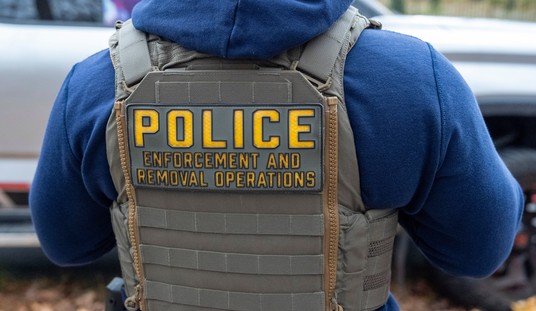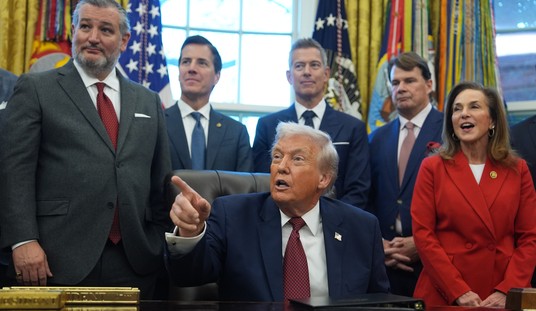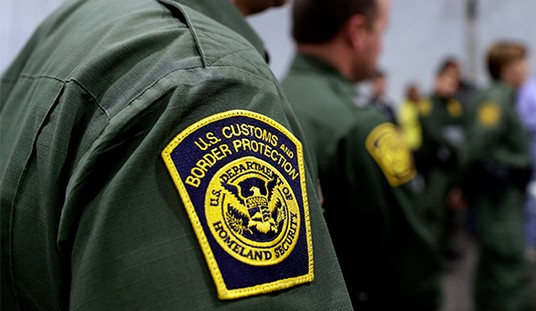One of the preferred methods liberals use to tax and spend is to create special “trust funds” for particular expenditures, with the intent of hiding the funds within the Treasury’s general fund. The system goes something like this: levy a tax that is supposedly earmarked for a specific expense and impounded in a trust fund (lock box); gradually purloin the fund by using it for general expenditures, while using general fund monies (and debt) to overspend on the trust fund expenditures; demand that taxpayers contribute more to the trust fund that has gone broke. This is ostensibly what has happened with the Social Security Trust Fund. It’s also what Big Business and Big Labor desire to do with the Highway Trust Fund, which was modeled after the SS fund.
The Highway Trust Fund, much like the SS Trust Fund, is maintained by money from the general treasury that is credited to the fund. It was established in the ’50s to fund the Interstate Highway System. Beginning in 1983, Congress began siphoning off some of the gas tax revenue for the great inviolable sacred cow; the urban mass transit system. Today, mass transit receives $10.2 billion in annual appropriations.
The extent of the credit from the general treasury was supposed to be commensurate to the revenue generated by the gas tax, paid by all motorists and users of the highway system. Not surprisingly, the demarcation between revenue sources became muddled over the years, and as pork barrel spending grew ubiquitously among our esteemed leaders, the funding authorized for the trust fund far outpaced the revenue from the gas tax. In 2008, the trust fund was completely depleted, compelling Congress to replenish the fund with an additional $35 billion over the past few years.
The authorization for funding the Highway Trust Fund is typically renewed every six years in a transportation reauthorization bill that creates six years’ worth of mandatory spending that is not subject to the annual appropriations process. The Department of Transportation then takes this money and doles it out to the states. States with more aggressive porkers inevitably receive more funding. These bills were always bipartisan endeavors of the House Transportation and Infrastructure Committee, as both parties enjoyed unlimited pork and goodwill with their constituents.
The 2010 elections and the Tea Party changed all that.
As a new spirit of fiscal discipline slowly seeps into Washington, John Mica, Chairman of the House Transportation Committee, has drafted the framework for a new highway bill that will cap the funding for highway and transportation projects to the amount of revenue supplied by the gas tax and other highway user fees. His bill would authorize $230 billion for the next six years, down from the $286 billion of the 2005 highway bill, and well below Obama’s prodigal $556 billion plan. The proposal would eliminate 70 duplicative projects and focus the trust fund on the one federal transportation priority; the Interstate Highway System. Other projects, such as planting flowers, creating bike lanes, and beautification projects that are not covered by the block grants to states, will be shouldered by those localities that deem them necessary.
Additionally, the Mica proposal would reinstate the original objective formula for allocating funds – a system that distributes the money based upon factors, such as population and geography, as opposed to the political porking system that has been in place during the past two decades. The bill would also restrict the ever-growing migration of funds from the Federal Highway Program to the urban transit programs, a pet project of the left. Our gas taxes were supposed to fund our usage of the nation’s highways, not mass transit. Mica’s bill would limit funding to mass transit and lift barriers that prevent private companies from offering public transportation.
Unfortunately, along with the Democrats, labor unions, and usual rent-seeking parasites, the Chamber of Commerce is condemning the new austerity measures in transportation funding. Concurrently, they are calling for an increase in gas taxes to fund their construction projects that are either gratuitous or should be funded by the localities that so desire them. The Chamber’s Executive Director of Transportation and Infrastructure Janet Kavinoky offered this very ‘unChamberesque’ comment regarding Mica’s highway bill earlier this month:
“It is clear the Committee has been constrained by the House-passed budget as the investment levels are unacceptable. Cuts will destroy – rather than support — existing jobs and will not enable creation of the additional jobs needed to put the 16.3% of unemployed workers in the construction industry back to work.”
For an organization that purports to be pro-growth, the Chamber should have learned that superfluous Keynesian construction projects don’t create jobs. The 16.3% unemployment figure persists even after the Porkulous bill unleashed almost $1 trillion dollars’ worth of “investments” into our infrastructure. We are left with needless repaving projects which induce pervasive and intolerable traffic juggernauts on our interstate highways.
Unlike the Chamber, Big Labor’s push for a second stimulus ensconced in the highway bill is par for the course. AFL-CIO President Richard Trumka bemoaned that the Republican transportation bill, which cuts about $15 billion in annual transportation funds, will “obliterate over half a million jobs in the next year alone.” Well, if $15 billion in annual cuts will cost over 500,000 jobs on a year over year basis, then the $821 billion stimulus should have created over 27 million jobs!
Three cheers to the Keynesian crony capitalist alliance of Big Labor and Big Business.

The last 6-year highway bill expired almost two years ago, forcing Congress to pass eight short-term extensions in the interim. Barbara Boxer, who chairs the committee with jurisdiction on the Senate side, is balking at Mica’s bill and plans to introduce yet another short-term extension. The problem with short term bills, as Congressman Mica astutely observes, is that they encourage poor planning by state governments. In their alacrity to gobble up the short-term money before it runs out, state and local governments tend to use the funds on small time and indivisible projects, such as incessant road repaving, instead of better planned long-term projects.
Republicans are now signing onto a balanced budget amendment; however, we will never achieve a balanced budget unless we make things like transportation funding leaner, more efficient, and more centered around local governments – with an emphasis on privatization. Since the completion of the interstate system in 1991, the federal government really needs to reduce its carbon footprint in transportation issues. At a minimum, Republicans in both Houses should hold the line and support Mica’s highway bill in the face of self-centered special interests who are clamoring for more Porkulous.













Join the conversation as a VIP Member